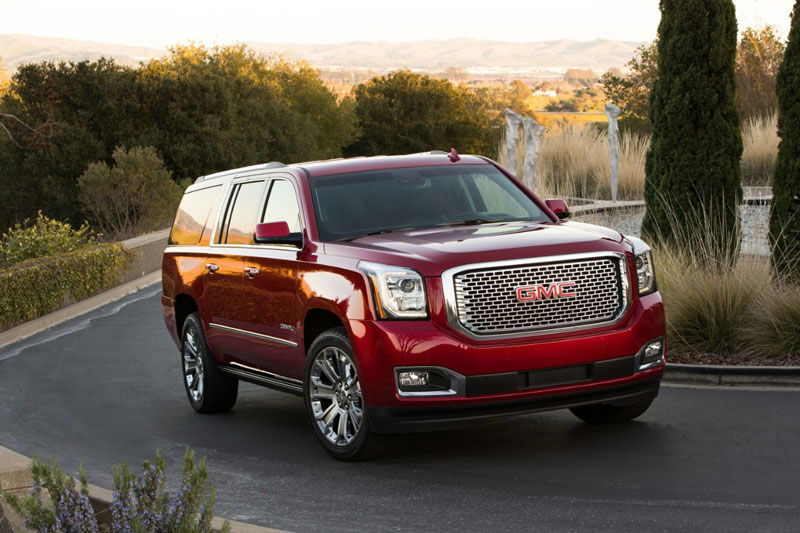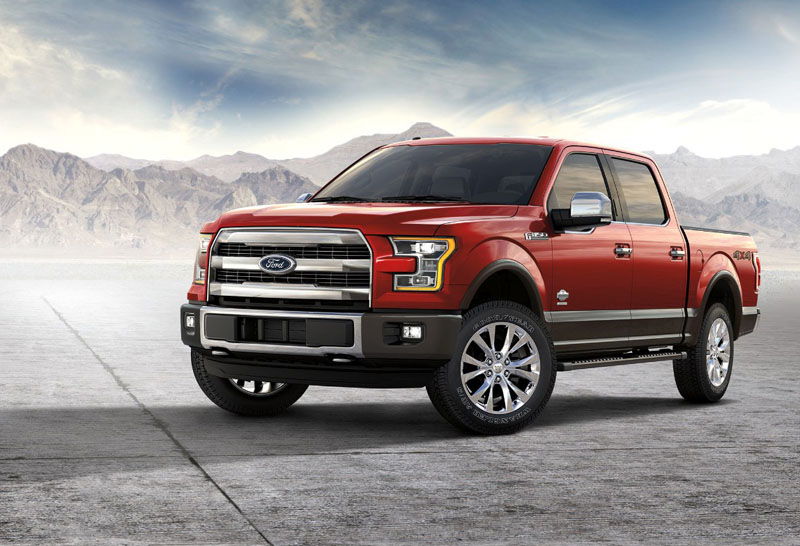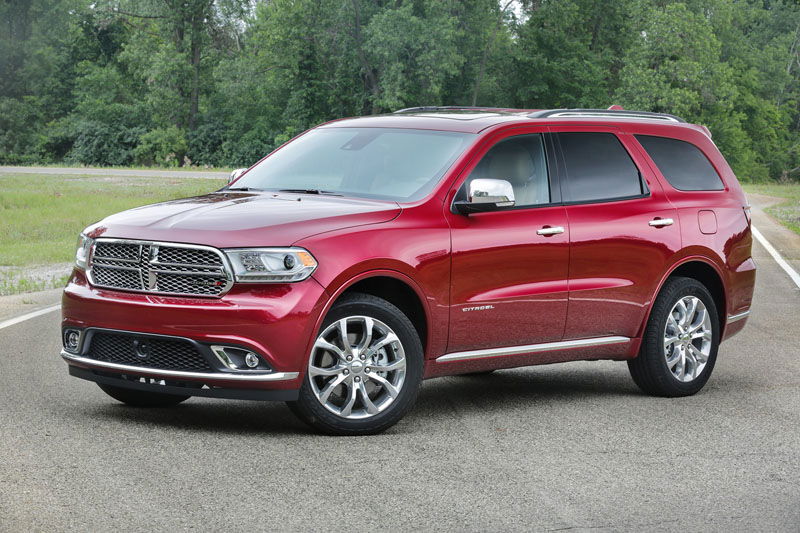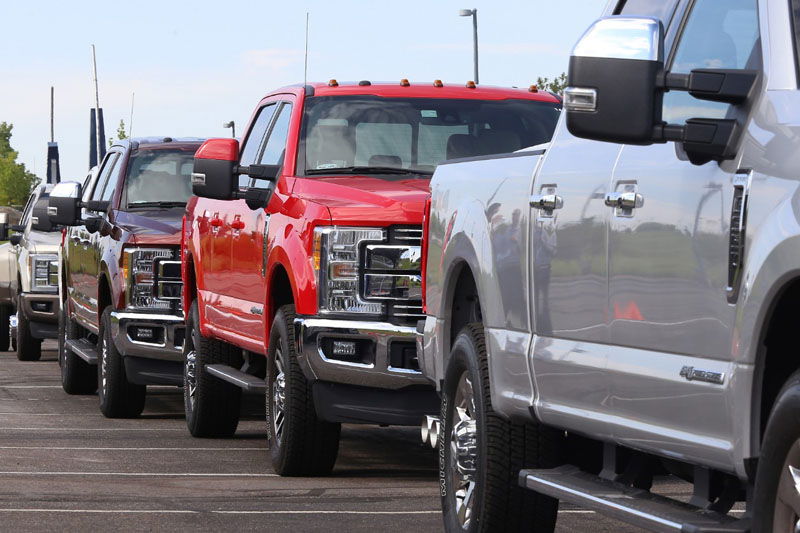Fuel Prices Are About To Surge, Yet Americans Continue To Buy Trucks In Record Numbers

The year was 2008. I was working in a call center in Southeast Michigan helping auto insurance adjusters figure out how much wrecked cars were worth. I’d recently left a position working with the performance division at Ford because, well, everyone was leaving. The way things were going with all the auto companies at that time, I figured switching to the insurance side would be recession-proof. After all, no matter how bad things get, people still crash. Right?
Long story short, it wasn’t recession-proof. But I did survive the auto industry collapse and global financial meltdown living just 40 miles from ground zero - AKA Detroit, Michigan. I was lucky; in that part of the country there were business executives with 20 years of experience and multiple college degrees fighting for jobs at Wal-Mart. Engineers who could rewire the International Space Station couldn’t get jobs flipping burgers at McDonalds.
Many of them were also saddled with pickup trucks or massive luxury SUVs.

I’m not against such vehicles, and with a rather inefficient V8 car sitting in my garage right now, I’d be a gigantic hypocrite if I said people shouldn’t buy them. But my Mustang isn’t a daily driver, and at 1/20th the cost of that GMC Yukon, I can easily afford something else that’s a bit more frugal. Most truck and SUV buyers don’t take that extra step; they look for the snazziest model they can afford and plunge into it without considering what would happen if petrol prices double or triple.
The bigger-is-better mentality with nary a concern for economy in this day and age is where I facepalm, because we should’ve learned a serious lesson by now. This is how so many people lost their shirts a few years back, not to mention their vehicles and homes. And it’s how General Motors - once the largest auto manufacturer in the world - went bankrupt.
And my spider sense tells me it’ll be happening again, in the not-so-distant future. More on that in a moment.
I know - us Americans are crybabies when it comes to petrol because Europe pays far more than we do. Europe also has a wide range of vehicles that do 50mpg, whereas we are still stuck in the 30mpg range, save for a few hybrids. It all balances out, but more importantly, Europeans buy those efficient diesel hatchbacks because most are pretty decent cars, and you know, they don’t want to spend all of their money on petrol driving to the pub.
Here in the States, when petrol topped $4.00 a gallon many people didn’t get that memo. They kept right on driving their 15mpg pickup trucks to the pub, to work, to the mall, anywhere they wanted to go until their bank accounts and credit cards literally disintegrated. Once they realised something needed to change it was too late. People were broke, and because their trucks drank more fuel than a Eurofighter in full afterburner, they were virtually worthless.

I clearly remember talking to an auto insurance adjuster during my time at the call center. It was September 2008 and Hurricane Ike had just hit the Texas gulf coast. The adjuster had several total loss claims from the area; people couldn’t afford to drive their pickups and SUVs, nor could they sell them because nobody wanted to buy them. So they just drove them to the beach before the storm hit, and let Ike’s storm surge do the rest. They failed to realise insurance payouts were based on current values anyway, so I suspect many people were still left owing money on vehicles they no longer had.
Today, pickup trucks and SUVs in the US have grown bigger than ever, and American buyers are right back to soaking them up. And it’s not as if they suddenly became fuel misers either - despite hype from manufacturers about “60 percent better fuel economy” they all still suck. Literally. A 2016 GMC Yukon still gets 16mpg. The best pickups or big SUVs might reach 20.
Americans bought a record 17.4 million cars last year, eclipsing the previous record set in 2000. So far this year overall sales are down by roughly eight percent, but large SUVs, crossovers and pickup truck sales are actually up quite a bit. Petrol in the States has been between $2.00 and $2.50 for most of the year, which is certainly encouraging people to go right back to loving their big, thirsty, do-all workhorses.

I can’t fault manufacturers for building the vehicles people want to buy, nor can I call out people for making purchases from the heart. If you want a big pickup and can afford it, do it. I won’t lie - pickups and SUVs are pretty damn nice these days. But you better have a plan when (yes when) energy prices go back into the stratosphere. Because that new 18mpg off-roader that never goes off-road will get crazy expensive quicker than you can say government bailout.
Oh how quickly people forget, but if petrol prices double in the next couple years - and I believe they will - people will quickly and tragically remember. How do I know this will happen? Well, let’s take a look at current events.
OPEC just announced a cut in oil production, the first such deal since 2008. Prior to that, US auto sales had been strong - record-level strong - led by pickup trucks and SUVs taking advantage of low petrol prices in the States.

Maybe I’m being pessimistic. Maybe this time the crash won’t be quite so bad. The auto market in the US is more diverse with small, efficient alternatives to trucks and big SUVs that are legitimately good. And since 2008 there’s been quite an expansion in shale oil production in the States, and when oil tops $50 a barrel that production will likely ramp back up. Maybe people will be smarter this time. Maybe there won’t be another crash at all.
Or maybe in a couple years we’ll see more Yukons, F-150s and Durangos parked along the Southern U.S. coastline, waiting for the storm surge to roll in.






Comments
Please come to India, here we love suvs so much we make them small, especially with the likes of hyundai creta or renault duster (dacia abroad), etc theyre effecient but not when compared to sedans or hatchbacks of the same price…..
I see 23+ mpg on the highway consistently and have done just shy of 25 on highways with 55mph limits doing 5 over in the Ozark region of Missouri (hills, lots of them) and 17-18 combined in my 5.3L v8 4x4 silverado. If you are getting 16 mpg in your new truck either you have a terribletraffic situation or you have a lead foot.
Reading the article and looking at my new truck. Is it worth it, yeah. I mean sure my other truck got slightly better gas mileage. But with snow and actually needing the truck to haul yard waste and other assorted crap, and with snow coming, I’m glad I have a bigger truck with 4x4 capabilities. (I hate the wheels, but I’m not changing them now). Oh and when you get totaled from a glancing blow from this type of truck. I feel a bit safer
See in NZ big V8 trucks like that are very uncommon, instead we have the likes of the HiLux, Navara, Ranger, and those big American ones look more like show off attempts seeing as everything you’d do can be done by the more common utes, and if not you’re more likely to get an actual truck truck (Mitsubishi Canter, Toyota Toyoace)
I guess it’s a difference in culture but I’ll never understand the American V8 obsession
Maybe if engineers an scientist were allowed to experiment with hemp, they could figure out how to make hemp oil work in existing ICEs. Plus, Audi has been helping develop E-Benzin, a synthetic fuel based on existing additives already in gas. Both are low emissions fuels, much more so than gas/diesel. Renewable as well. Those are the two main factors in replacing gas as a fuel, making sure it’s clean, and making sure it’s renewable so that it won’t eventually run out like oil, and be subject to price surges.
except it wasn’t the auto industry that crashed the economy, it was the housing market.
i also read this mostly as “i think, i think, i think… if, if, if…” with no real factual evidence of gas prices increasing
The Commodity Futures price for West Texas Intermediate (WTI) crude oil in December 2024 is $59.59 right now (ticker symbol CLZ24). For perspective, WTI is valued at $47.90 today, whereas it was over $100 in 2008 and several times from 2011-2014. That is to say, forecasters do not expect the price to “double in the next couple years” back to what it has been recently. Instead, they project less than 3% annual increase over the next 8 years.
As opposed to driving what? This post is really kind of funny actually because if we are to pick what to dive by its mpg and not by what we like than why doesn’t everyone who wants to do that go get a prius?
Meanwhile. Over at Ford.
The EcoBoost 3.5 F150 gets 22 MPG combined
Pagination